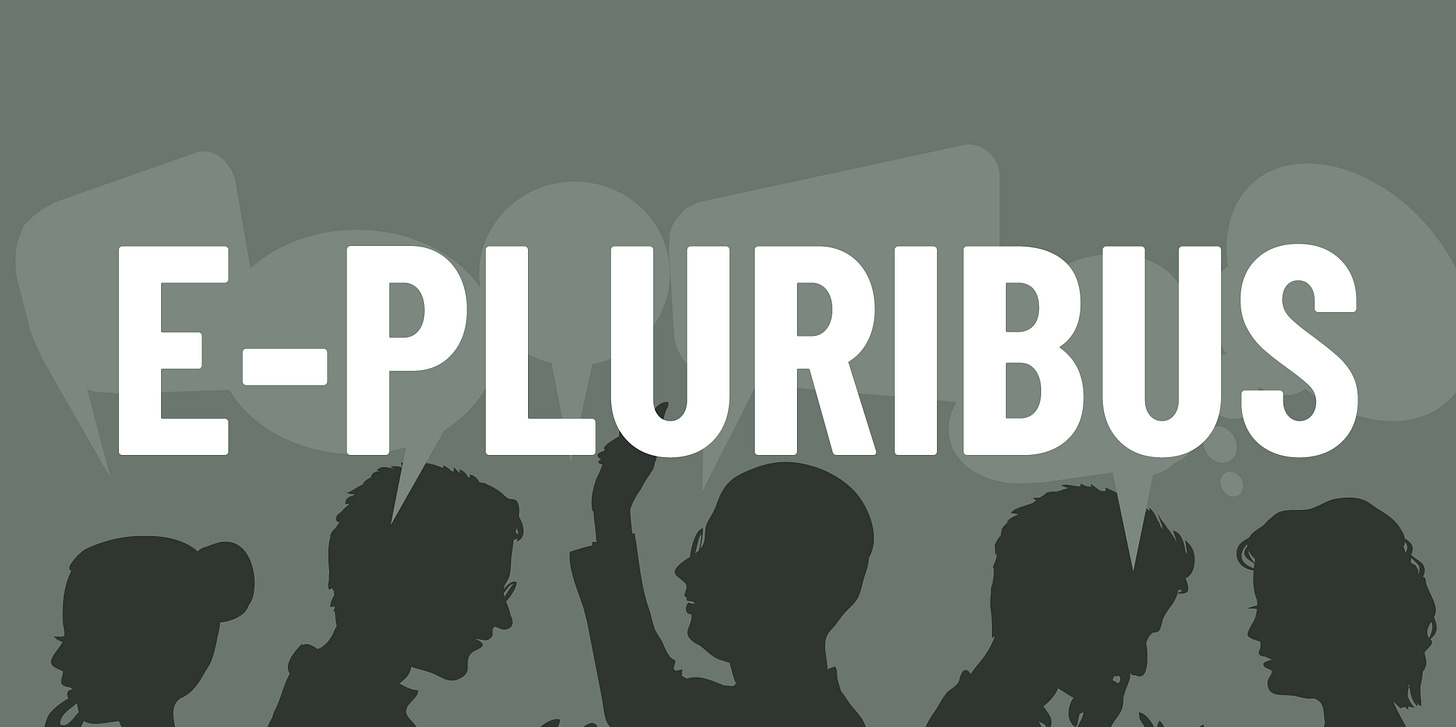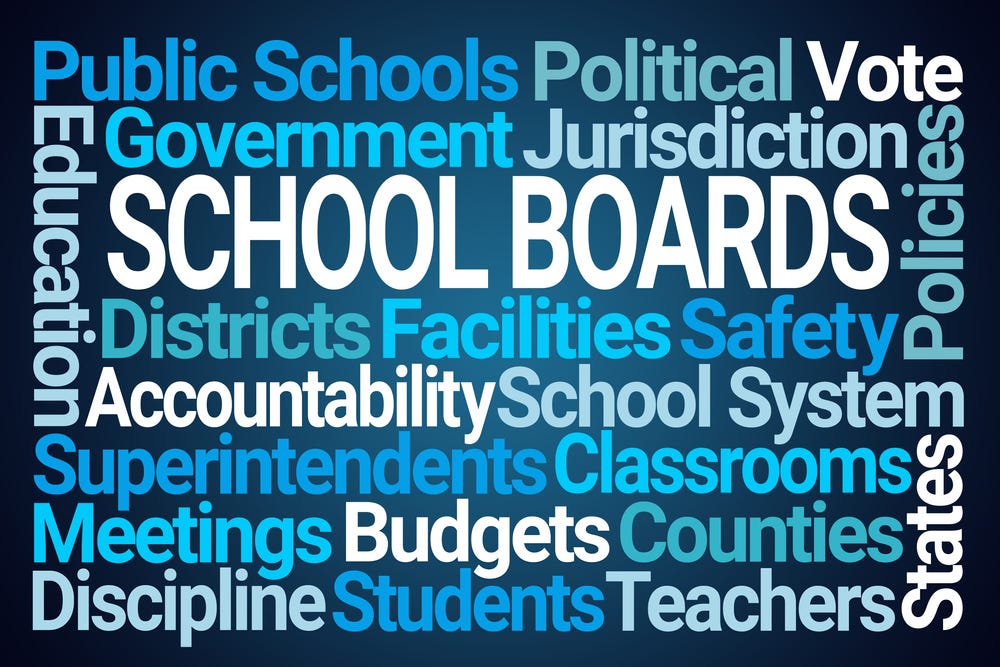E-Pluribus | May 5, 2022
Mitigation of educational politicization, can teaching math just be about math, and the culture of narcissism.
A round up of the latest and best writing and musings on the rise of illiberalism in the public discourse:
Matt Beienburg: How To Reduce Politicization in U.S. Schools
Battles over school curriculum have been going on for decades, but temperatures have recently been rising again over Critical Race Theory and gender identity issues in numerous states. Matt Beienburg at Discourse Magazine presents some ideas of how to depoliticize the issue of classroom instruction.
So it should be no surprise to find parents calling for—and lawmakers responding with—a more comprehensive solution to address this issue: curriculum transparency.
Indeed, over the past year, nearly a dozen states have passed through at least one legislative chamber versions of the Academic Transparency Act, which would require public schools to post on a publicly accessible portion of their website a listing of the learning materials used for student instruction. Pioneered by the Goldwater Institute—where I work—and championed by parent and policy advocates around the nation, this approach would preserve public schools’ autonomy to set their own curriculum and pedagogy, while bringing accountability—via transparency—to the instruction taking place there.
In essence, rather than springing on families politicized content like The New York Times’ 1619 Project—which is typically omitted, even when used in class, from schools’ officially published curricula—schools would be required to take responsibility for their selection of materials by publicly disclosing it up front. (Technically, under the academic transparency approach, schools are required to report materials only after their use—allowing teachers to flexibly supplement their lesson plans throughout the year—but the list of materials used in one year provides the single best predictor of what parents can expect their students to encounter at the same school the following year.)
[ . . . ]
[E]ven educators who have opposed transparency policies admit that they are easy to implement. When questioned by lawmakers about his testimony against South Dakota’s proposed transparency measure, for instance, one superintendent admitted in spring 2022 that his own district had already adopted an almost identical approach to ensure curriculum accountability: “We as a district decided that the teachers were going to put their lesson plans online so they’re available to the parents. We do that already.”
And in Kansas, despite testifying against their academic transparency legislation because it was “unnecessarily punitive to teachers,” one former teacher of the year acknowledged: “We also have the ability to push out lesson plans on interactive websites such as Google Classroom. . . . My parents can see everything that I am teaching for the entire week, Monday through Friday, with all of the links that I use. . . . We attach every link that we have. . . . We’ve attached all of the video links.”
Read the whole thing.
Jessica Grose: I Just Want My Kid to Learn Algebra. Does That Make Me a Culture Warrior?
At times, there seems to be more effort put into how teaching takes place than what is actually being taught. The New York Times’s Jessica Grose makes a plea in her latest newsletter for her child to just be able to learn algebra and other basic subjects without the modern-day culture war issues entering the classroom.
Last month, Florida rejected dozens of math textbooks because, the state found, they “included references to critical race theory” or had “inclusions of Common Core” or “the unsolicited addition of social emotional learning.” The New York Times reporters Dana Goldstein and Stephanie Saul reviewed 21 of the rejected books and said that while “in most of the books, there was little that touched on race,” they did include aspects of S.E.L., which they described as “a practice with roots in psychological research that tries to help students develop mind-sets that can support academic success.”
S.E.L. is the latest front in the educational culture wars, and it’s painted as a kind of gateway drug to critical race theory by its opponents. Christopher Rufo, a senior fellow at the Manhattan Institute, a right-leaning think tank, told Goldstein and Saul that while S.E.L. seems uncontroversial, “in practice, S.E.L. serves as a delivery mechanism for radical pedagogies such as critical race theory and gender deconstructionism.”
As a parent, I read this and felt completely exhausted. Partly because I don’t care all that much about whether textbooks explicitly address social and emotional learning. Good teachers, those who care about all of the students in their classes, incorporate these concepts whether they’re spelled out in a textbook. My fourth grader constantly tells me that “practice makes progress,” instead of “practice makes perfect,” because her school is teaching her to keep working at something even if she isn’t great at it right off the bat.
What I care deeply about is whether my kids are learning the math they are supposed to be learning at their grade level. And I find that very little of the recent political battles over what schools are teaching actually focuses on how American students are doing compared with students in other parts of the world. While most of these culture war conversations are kick-started from the right, there are also unpopular ideas from the left that draw backlash, like recommending against accelerated math in middle school and making standardized college entrance exams optional — despite only 14 percent of Americans believing that standardized tests shouldn’t be a factor in college admissions decisions, according to Pew Research.
Read it all here.
Blake Smith: The Narcissism of Hyper-Politicization
Many participants in today’s political and cultural battles see themselves as fighting for the greater good, but Blake Smith argues at City Journal that sometimes these warriors just plain see themselves.
One feature of our intensive politicization is that it disconnects the expression of attitudes, preferences, and identities, on the one hand, from collective projects to influence policy and reshape society on the other. Being “political” means airing one’s views and publicly taking sides. Whether it’s Alexandria Ocasio-Cortez in her “Tax the Rich” Met Gala dress or Madison Cawthorn punching a tree, political action means producing attention-getting images. Our elected officials’ distorted sense of politics reflects that of ordinary people, who seem increasingly to imagine politics as a mode of self-expression rather than as coordination toward shared goals. Coordination, of course, would require individuals to discipline themselves, to moderate their insistence on their own uniqueness, and to subordinate their own desires to a greater good.
Such restraint is the essence of politics as traditionally understood. In his 1919 lecture, “Politics as a Vocation,” the sociologist Max Weber insisted that politics has nothing to do with self-expression. Political activity, he argued, is a domain of human life with its own rules. In the ethical or aesthetic domains, we try to express our relationship to values like goodness or beauty, cultivating ourselves as spiritually pure or creative individuals. In politics, however, we are responsible for articulating and achieving common goals, which requires us to appeal to—and coerce—others. Effective political action requires, according to Weber, setting aside our individual standards of right and wrong when necessary. Though we might personally abhor violence, for example, governing means using an implicit threat of force to compel citizens to act in certain ways. And while we may think that lying is a sin, politicians can never be entirely honest.
Anyone who wants to get involved in politics, for Weber, must know that they will not be able to maintain entirely a personal ethical code. They will have to accept the rules of the political domain in order to acquire power to fulfill their goals. The fundamental error of political actors, he warns, is “vanity,” or an investment in their own image, which “begins where this striving for power ceases to be objective and becomes purely personal self-intoxication.” The vain politician is “constantly in danger of becoming an actor as well as taking lightly the responsibility for the outcome of his actions. . . . His lack of objectivity tempts him to strive for the glamorous semblance of power rather than for actual power.”
Our leaders today seem stricken with vanity, combining attention-seeking with practical impotence. One has only to compare the zest with which figures such as Donald Trump and Nancy Pelosi seek the spotlight to their inability to steer the American ship of state effectively. But ordinary people, too, are caught up in this desire for the “glamorous semblance” of power disconnected from any common goals and responsibilities. Indeed, many of the twentieth century’s leading thinkers have described this condition as “narcissism” and have diagnosed it as the characteristic pathology of our age.
Read it all.
Around Twitter
Wesley Yang picks apart a New York Times story on Elon Musk (excerpts from a thread):




Some harsh words for the ACLU from University of San Francisco School of Law professor Lara Bazelon, with commentary from Conor Friedersdorf:






And finally, Matt Yglesias illustrates why it’s always importance to read the fine print:









